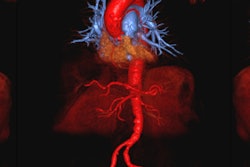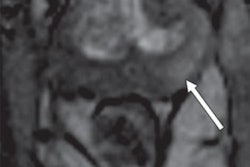Researchers from the University of Massachusetts (UMass) have developed a protein-based MRI contrast agent that targets tumors and can be easily cleared by the body, according to a paper published online June 5 in Nano Letters.
The contrast agent has several potential clinical applications, including early-stage tumor detection, according to senior author Gang Han, PhD, an associate professor of biochemistry and molecular pharmacology at UMass. It also might replace gadolinium-based contrast agents, which require high doses of intravenous administration and may be retained in the body's organs.
The research is based on human transferrin proteins, which can be used to create an MRI contrast nanoprobe by mimicking the body's natural process to form special nanoparticles called gadolinium biomineralized human transferrin protein-based nanoparticles.
"The [protein-based nanoparticles] preserve the functions of transferrin very well, possess superior chemical and physical properties, and are brighter compared to the gadolinium-based agents currently in use," Han said in a statement.
The contrast-enhanced MRI technique could be useful for visualizing tumor therapies, as well as for optimizing drug dose and evaluating clinical results, added lead author Dr. Yang Zhao.



















